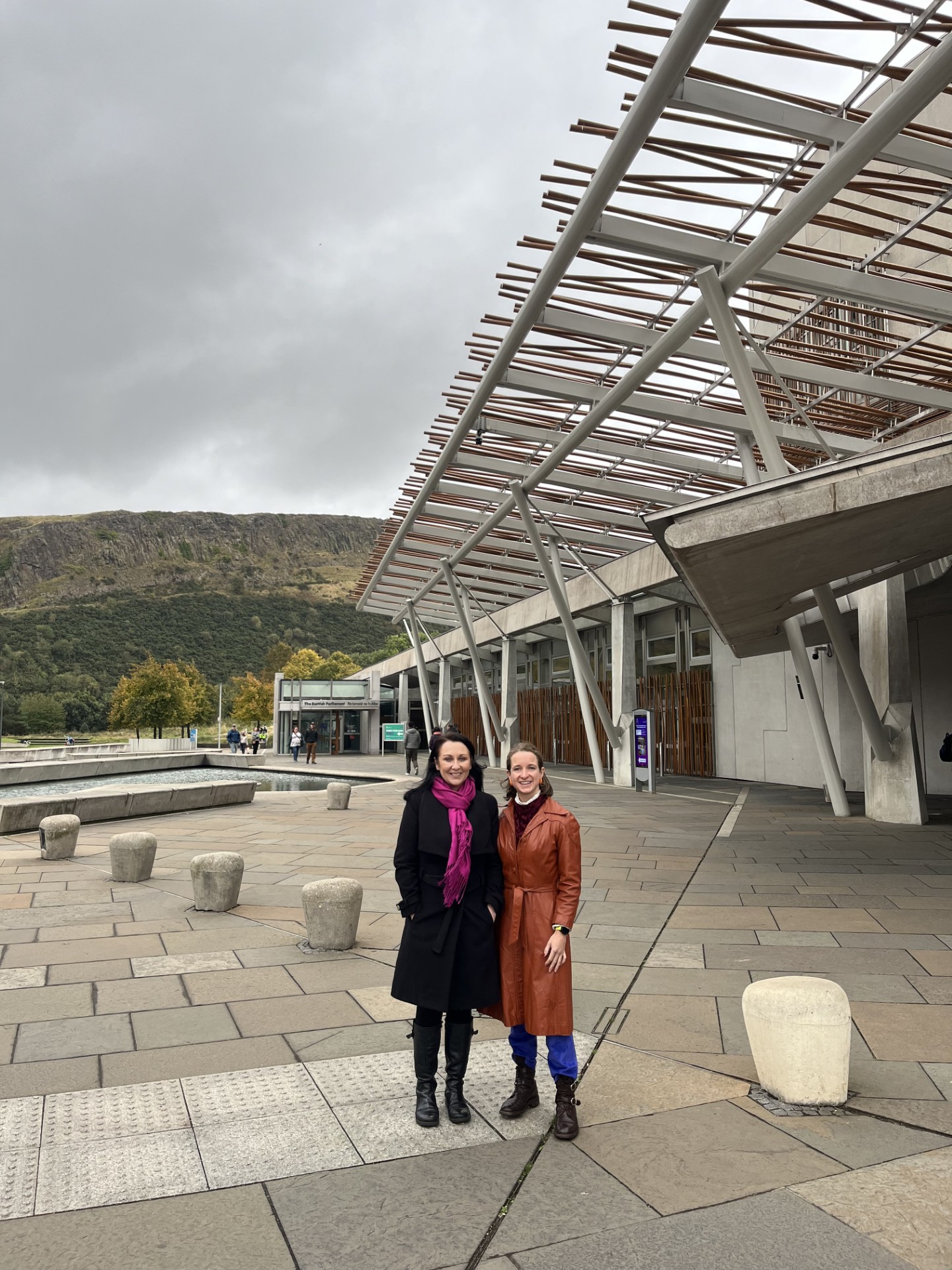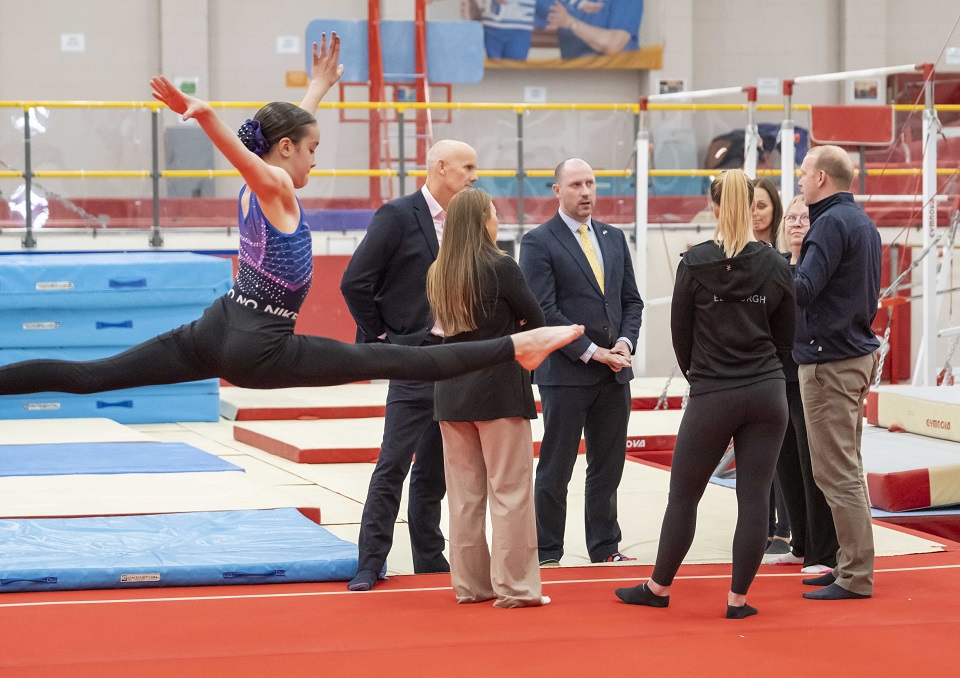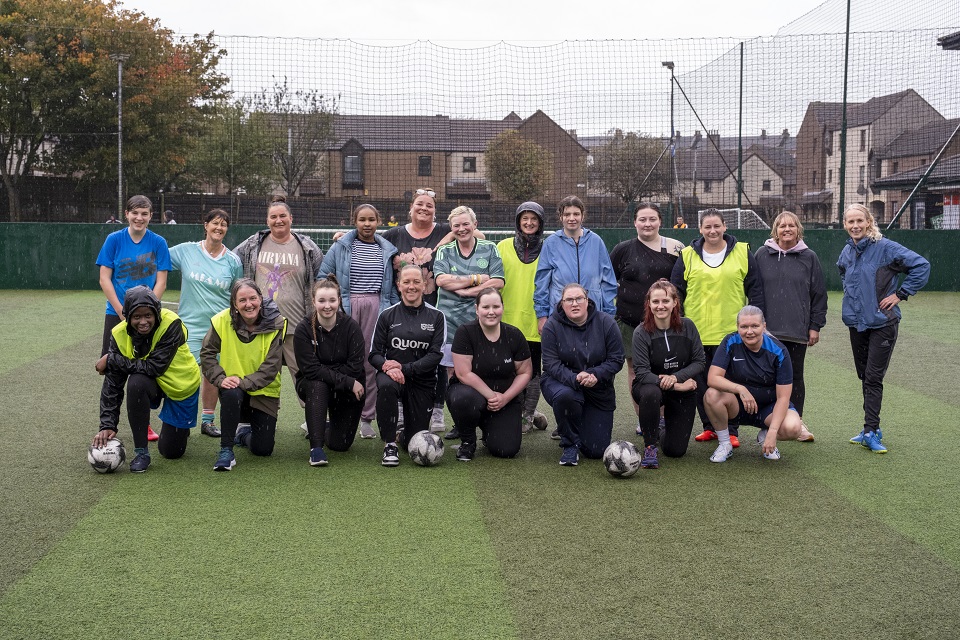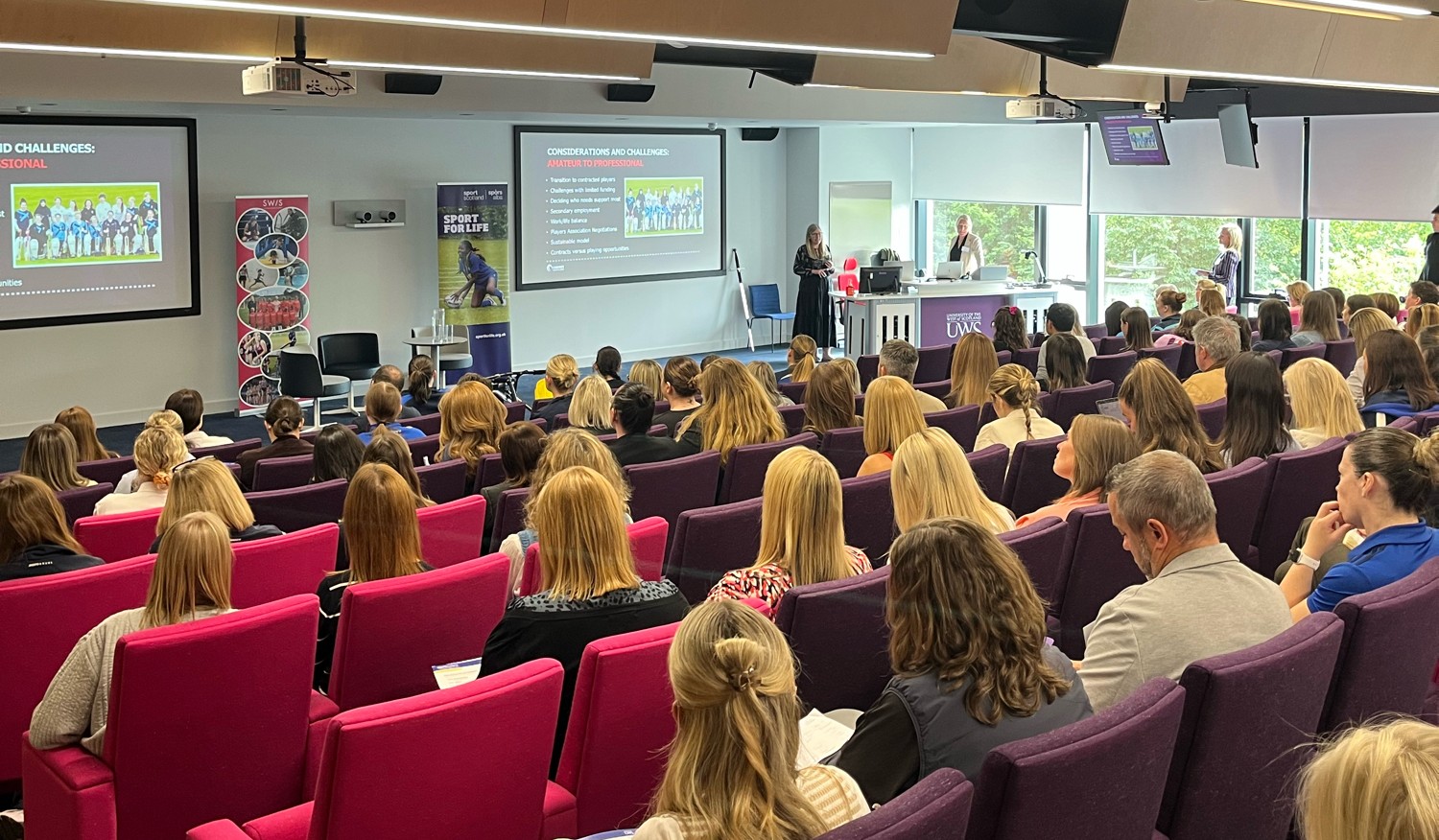To mark the eighth anniversary of Scottish Women and Girls in Sport Week (September 30-October 6), Scottish Government Ministers have been visiting the projects across the country which are working to encourage more women and girls to take part in sport and physical activity.
The Minister for Victims and Community Safety, Siobhian Brown, met with Natacha Lazareff on Tuesday 1st October, to hear about the work of Kyniska Advocacy, a survivor-led and athlete-run organisation working with UK sporting communities to influence change in welfare and wellbeing policies for women athletes.
Throughout their walk and talk, the minister heard about the work of advocacy group and the strong link in the work they do has to the minister’s portfolios areas. As Kyniska was founded by a survivor of sexual abuse in sport as a young adult, the organisation sits at the intersection of the sport, and victims and community safety portfolios.

Kyniska Advocacy are the UK's only athlete-led & sport-wide safe sport organisation; established by two women athletes, Kate Seary and Mhairi Maclennan, who, following their own adverse experiences as young adults around the way women are treated in sport, decided to do something about it.
Kyniska’s current work includes providing one-to-one confidential support for anyone experiencing abuse in sport, research to understand the long-term impacts of abuse in sport, and a forthcoming campaign on the importance of lighting on popular pathways to keep people safe when exercising in the winter months.
Victims and Community Safety Minister Siobhian Brown said: “It was good to meet with Kyniska Advocacy to learn about the research, campaigns and services they provide to support female athletes. The Scottish Government wants to create a safe and welcoming environment for women and girls in sport and physical activity and we recognise and value the importance of the perspective that Kyniska Advocacy can bring as an organisation in doing that.
Natacha Lazareff, who works as part of Kyniska Advocacy as a Wellbeing and Performance Psychologist, said: “The big thing for us is to make sure that people in government actually hear the voices of athletes and survivors and they really take those stories into account, when they are implementing policy and designing better safeguarding frameworks. The survivors are the people who really know what we need and how we can do things better. This is really our whole focus as an organisation to ensure that we make change that is both athlete and survivor-led.
We are campaigning for safer sport for women and girls to be a priority and the more we get out there, the more we are on people’s radars. Many don’t even know or understand many of the issues are happening, so we as a leading organisation feel a sense of importance in spreading awareness, especially as part of Scottish Women and Girls in Sport week.”
Scottish Women and Girls in Sport Week aims to reach as many women and girls across Scotland as possible. The campaign is designed to show women that whatever their age, location or life stage, there is a sport or physical activity that’s right for them. The hope is to reach as many women and girls as possible to help boost their physical, mental and social health which all comes from being active.
The week also provides an opportunity to promote the visibility and participation of women and girls as role models in sport and physical activity to help break down barriers and inspire women and girls to be active.
Chief Executive of sportscotland, Forbes Dunlop, said: “Sport makes a huge impact on people and communities across Scotland every day, and sportscotland’s aim is to help make sport accessible to all.
Women and Girls in Sport Week is a fantastic opportunity to showcase the great work being delivered across the sporting system to encourage more women and girls to become physically active.
This week also provides us with a good opportunity to think about many of the barriers that prevent women and girls from participating and engaging in sport and physical activity. Organisations like Kyniska Advocacy are ensuring that we are addressing the inequalities that still exist and how important it is to create a safe environment to participation.”




